After 55 days and nights of rapid military advance, described as "a day equals 20 years," the Spring 1975 General Offensive and Uprising by Vietnam's military and people achieved a total victory, triumphantly concluding the struggle for national reunification.
Fifty years after that historic win, Vietnam now enters a new era – building "a brilliant and radiant future for the nation." To mark this special occasion, VietNamNet presents a series titled “April 30 - A new era.”
In this series, experts, military figures, and historical witnesses share memories, lessons, and experiences from the resistance war against the United States. Central themes include the strength of national unity, the will to defend independence and reunification, and the confidence in a new era of national development.
VietNamNet invites readers to reconnect with the living monuments of history – the rare few who lived through those pivotal moments. These are former special operations soldiers, political prisoners, student movement activists, and urban resistance fighters. They dedicated their youth, faith, determination, and hope to the day of final victory.
Secret messenger from a young age
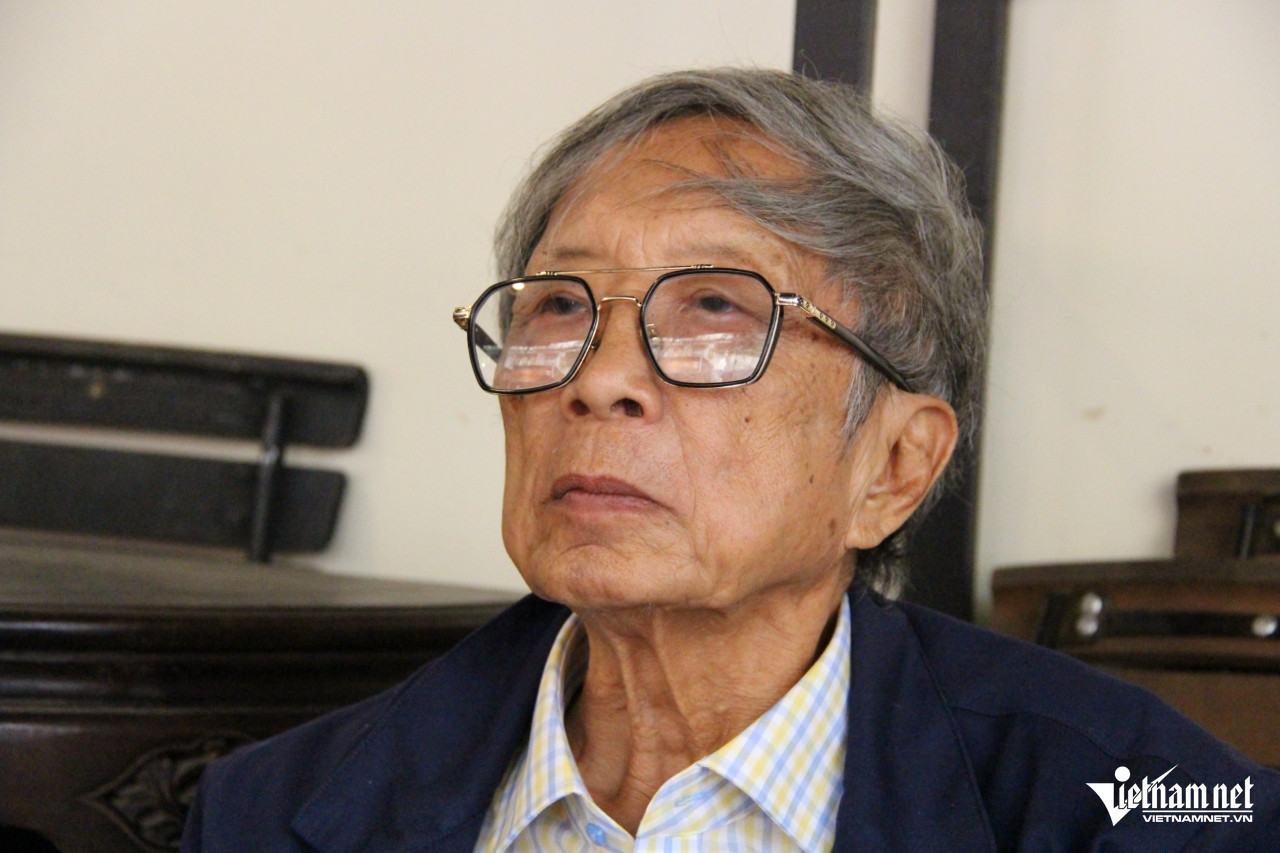
As April returns, Mr. Kieu Xuan Long (born 1939, Head of the Traditional Liaison Committee for the Resistance - Intellectual Mobilization Committee of the Saigon - Gia Dinh Party Committee) opens a notebook, reading the list of attendees for the 50th anniversary of national reunification.
Like him, they are living witnesses who participated in the historic Ho Chi Minh Campaign and experienced that sacred national moment 50 years ago.
Mr. Long comes from a revolutionary family. His father, Dr. Kieu Xuan Cu, engaged in clandestine activities before becoming an intelligence officer embedded in Nha Trang, Khanh Hoa.
"When I was little, he would ask me to deliver cigarette packs or newspapers to people like Mr. Nam or Mr. Ba. I followed his instructions innocently, unaware that these items disguised revolutionary documents in cigarette packs, medicine blisters, and newspapers,” he recalled.
At the time, his father was part of an intelligence unit formed by General Vo Nguyen Giap. In 1952-1953, recognizing the strategic role of the Nha Trang airbase, General Giap established an intelligence team to monitor its activities and limit its support to northern battlefields. The communication network extended from Quang Binh, Quang Tri, and Hue to Khanh Hoa.
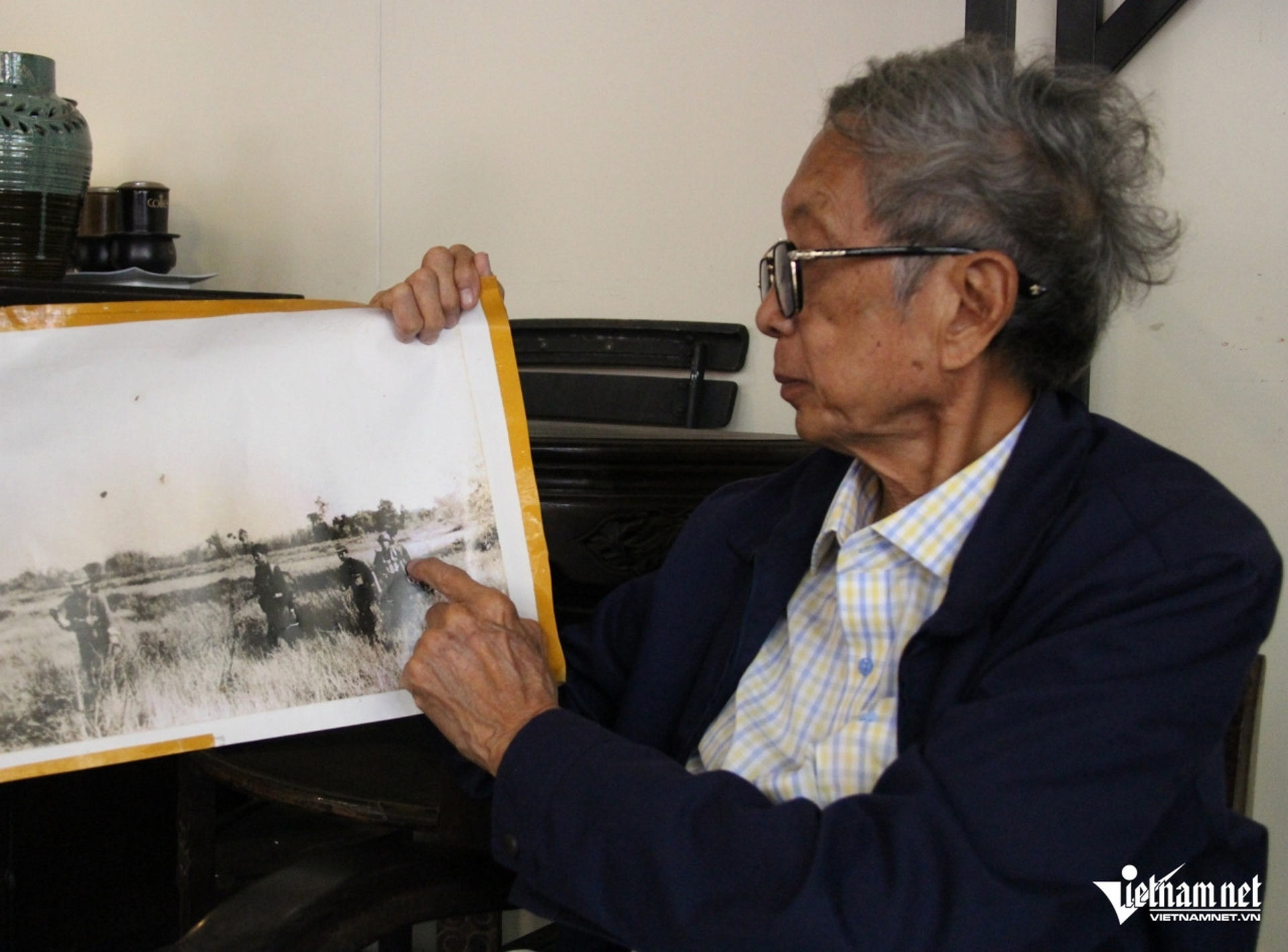
Mr. Long presents an image of himself and his comrades moving from the outskirts into downtown Saigon during the Ho Chi Minh Campaign. Photo credit: Ha Nguyen
When the Dien Bien Phu campaign broke out, the general ordered a bombing of the Nha Trang airbase. Although the attack caused minimal damage, it shocked and disoriented the enemy, who had no idea our forces had infiltrated so deeply,” Long recounted.
After 1954, Mr. Long and others such as Ca Le Hien (the famous poet Le Anh Xuan), and Duong Tan Phuoc were sent to the North for training. In Hanoi, they were granted special admission to the University of Hanoi to prepare as future leaders for the South.
During his student years, Mr. Long had unforgettable experiences, including witnessing President Ho Chi Minh lead a group of students in singing the unity anthem “Ket Doan” in Ba Dinh Square.
Strategic role in Saigon’s intellectual resistance
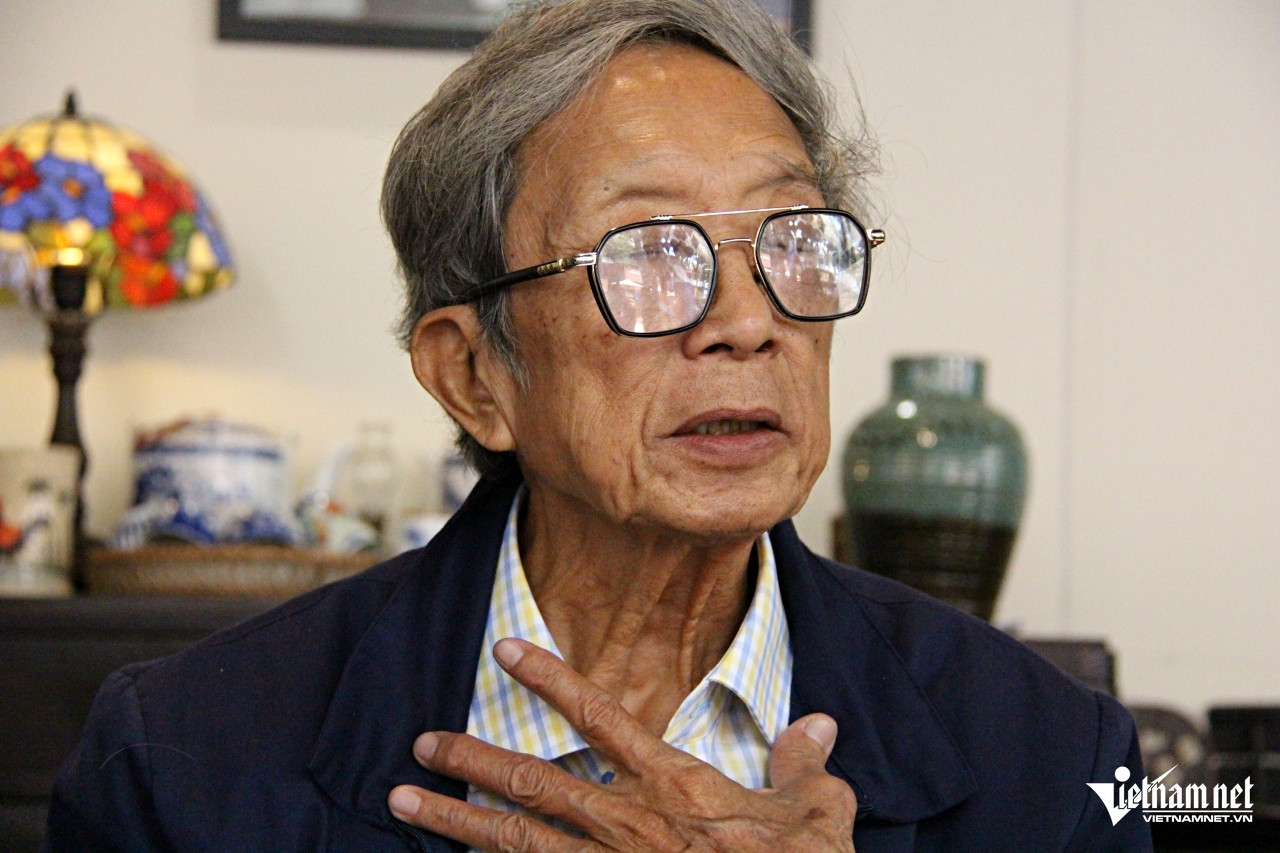
He shared that when participating in the Ho Chi Minh Campaign, he and his comrades felt proud, honored, and ready to sacrifice for the cause of national reunification. Photo credit: Ha Nguyen
Around 1964, while teaching chemistry at the University of Education, Mr. Long was called to return South. The Saigon - Gia Dinh Party Committee, recognizing the strategic importance of intellectuals, established the Intellectual Mobilization Committee to mobilize their support for the resistance. Mr. Long was appointed Party Secretary and Chief of Staff.
The committee organized political movements among intellectuals, senior civil servants, teachers, religious leaders, businesspeople, and artists, aligning them with broader urban resistance efforts involving youth, women, and workers.
Weakening enemy ranks from within
During the Ho Chi Minh Campaign, Saigon’s intellectuals, under the Intellectual Mobilization Committee’s leadership, played a crucial role in weakening the enemy, especially the upper echelons of the Saigon regime.
“We were tasked with toppling the enemy from within, creating a 'new situation' to end the war as envisioned by Ho Chi Minh. That’s why I call this the ‘special force’,” Mr. Long explained.
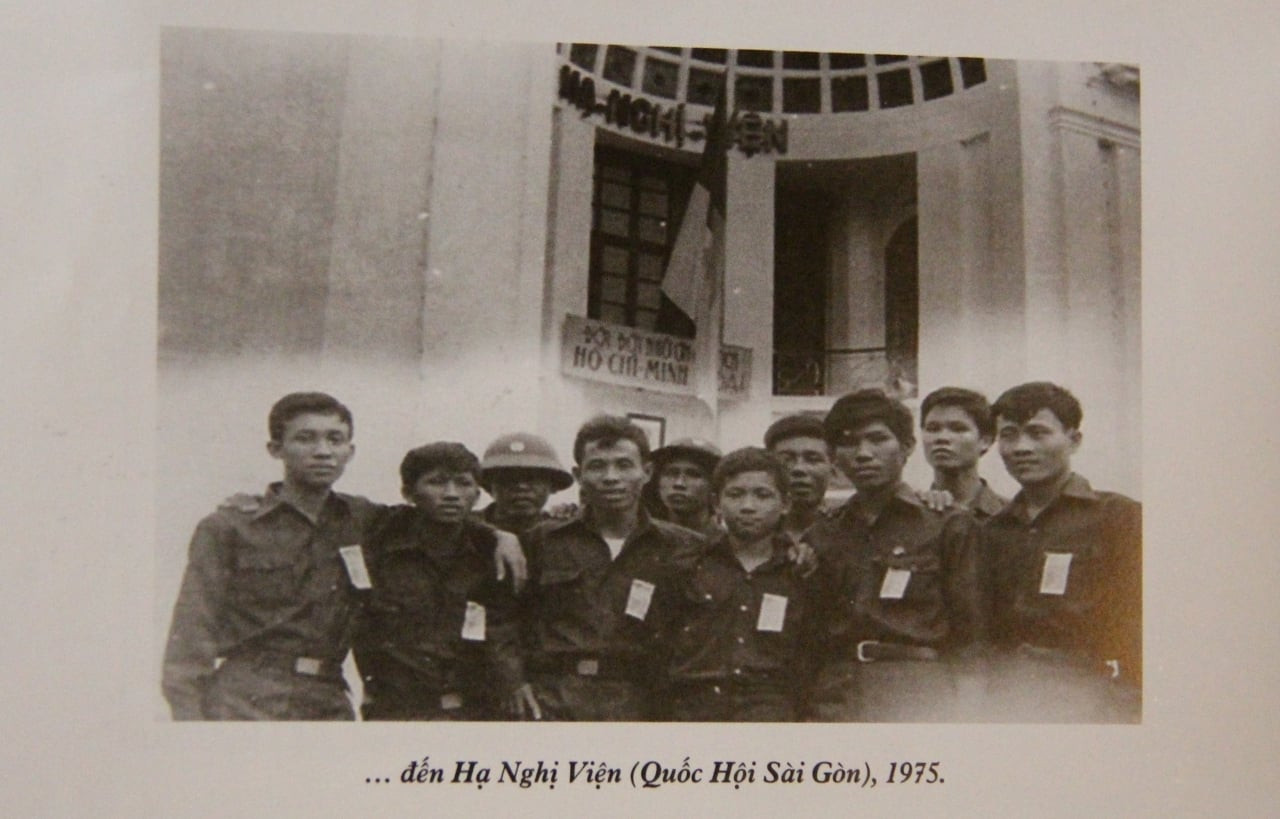
From 1968 to 1973, Mr. Long’s network operated covertly in Cu Chi and Binh Chanh districts. His team continuously delivered messages and documents to key figures in the city, such as lawyer Trieu Quoc Manh, Dr. Duong Huynh Hoa, and Kieu Mong Thu.
On April 28, 1975, the committee sent Mr. Trieu Quoc Manh to work under President Duong Van Minh. Successfully infiltrating the regime, Mr. Manh was appointed Chief of Police for Saigon - Gia Dinh.
Mr. Long recalled, “At the time, the Republic of Vietnam’s police force was the primary security unit in Saigon, with strong firepower and large numbers. As Chief of Police, Mr. Manh disbanded the entire police force. Thanks to this, our troops encountered almost no resistance entering Saigon on April 30, 1975.”
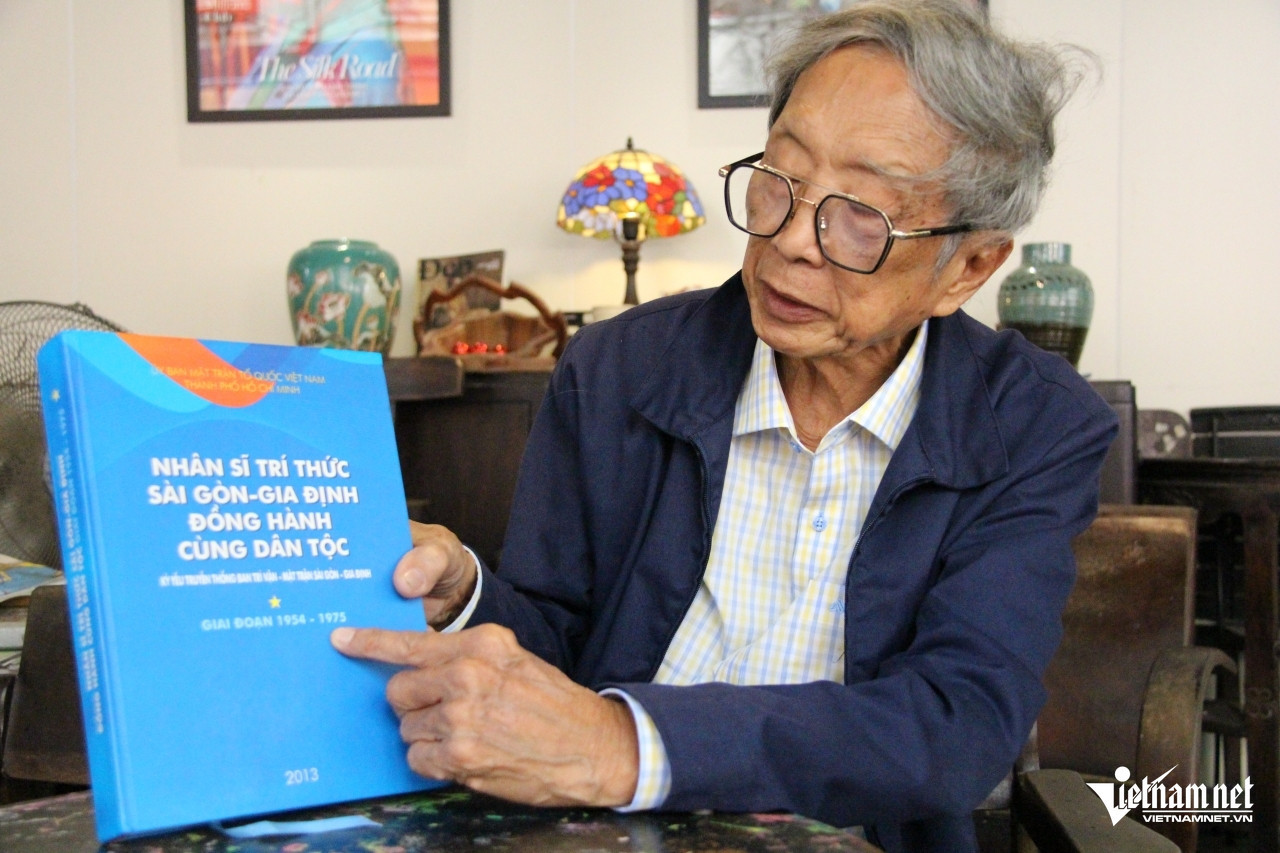
Mr. Long presents valuable documents about the intellectuals and scholars of Saigon – Gia Dinh who stood with the nation. Photo credit: Ha Nguyen
In the final days of April 1975, Mr. Long’s unit was ordered to enter Saigon from the south. En route, they received word that the operation to liberate Saigon - Gia Dinh was renamed the Ho Chi Minh Campaign.
His unit held a send-off ceremony in Binh Chanh, with banners and slogans, filled with pride and solemnity.
They entered the city and were assigned to take control of key facilities: Saigon’s main police headquarters, the courts, the House of Representatives, and the Vietnam - US Cultural Center. They then spread out to secure police stations, posts, and other enemy strongholds.
Entering the city prepared to die
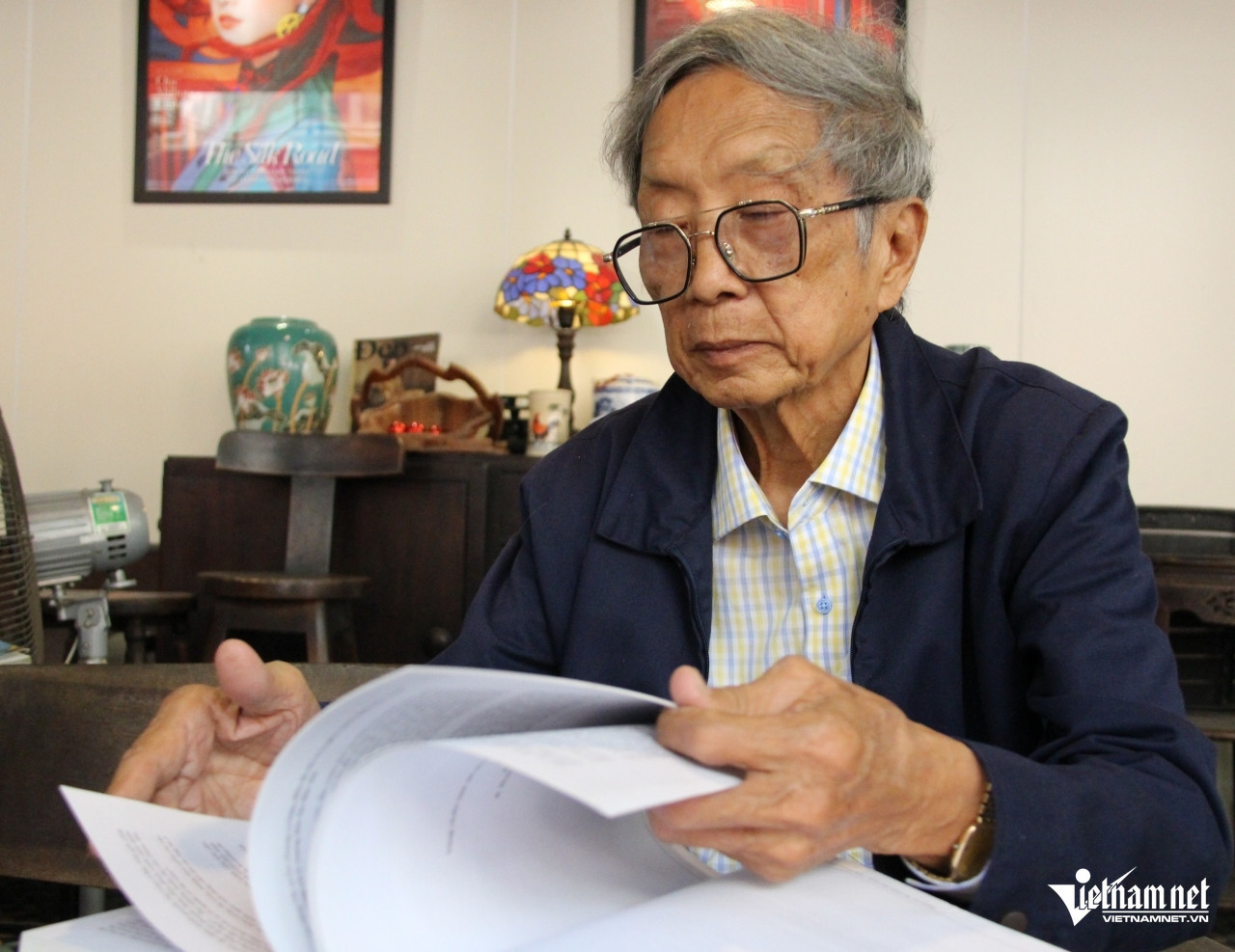
With pride in his voice, Mr. Long said, “When President Duong Van Minh announced unconditional surrender, we were behind the Independence Palace. The news stunned us. We had braced ourselves for resistance, for bloodshed. Everyone was ready to die. Everyone believed in victory but accepted the possibility of not witnessing it.”
“So when it happened without gunfire or bloodshed, we were overwhelmed with joy. We cried, unable to believe it was real.”
“It was the first time we met people we had worked with for years but never seen - like Father Huynh Cong Minh and layperson Nguyen Dinh Dau (both advisors to Archbishop Nguyen Van Binh). We embraced and wept together.”
Mr. Long emphasized the critical role played by Mr. Trieu Quoc Manh in disbanding the Saigon police within just 24 hours, allowing liberation forces to enter without confrontation. This, he said, was the true power of the special force, the internal team that cleared the path for the five main military divisions to enter the city.
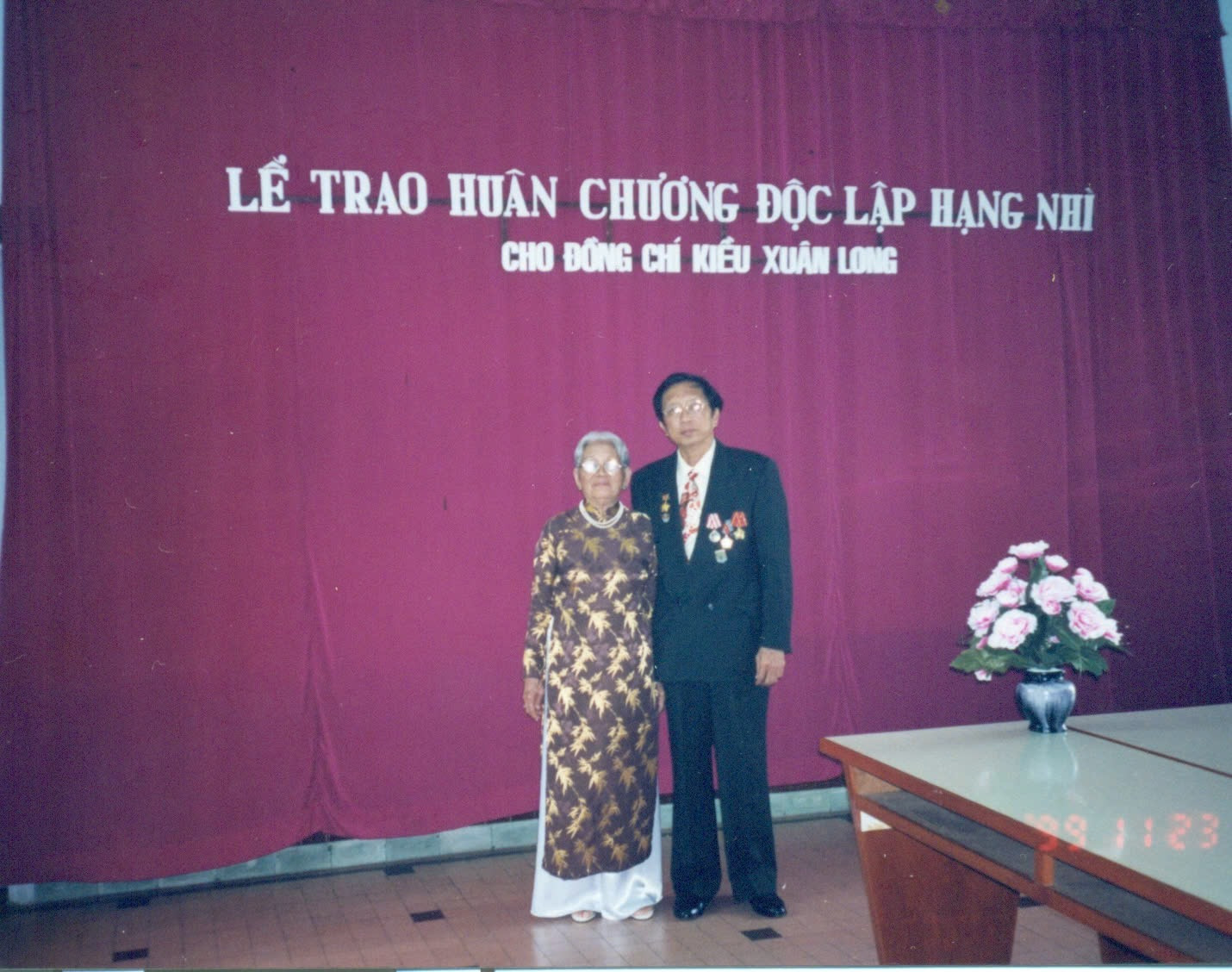
After reunification, Mr. Long joined the military administration, becoming Chief of Staff and Party Secretary of the Ho Chi Minh City Fatherland Front. In 1977, he began working at the Central Commission for Science and Education.
Following postgraduate studies abroad, he returned to serve as Deputy Director of the Education Department at the Commission until retirement.
(As told by Mr. Kieu Xuan Long, Head of the Traditional Liaison Committee for the Resistance - Tri Van Committee of the Saigon - Gia Dinh Party Committee)